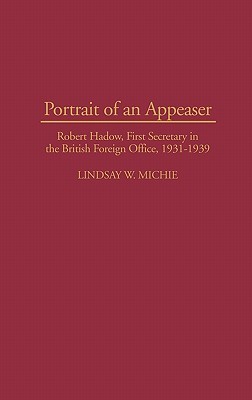
- We will send in 10–14 business days.
- Author: Lindsay Michie
- Publisher: Praeger
- ISBN-10: 0275953696
- ISBN-13: 9780275953690
- Format: 15.6 x 23.4 x 1.1 cm, kieti viršeliai
- Language: English
- SAVE -10% with code: EXTRA
Reviews
Description
This book relates the policy of appeasement to the personal beliefs and decisions of those responsible for foreign policy. Using Robert Hadow, First Secretary in the Foreign Office, as an example of an appeaser, this approach demonstrates how intelligent and capable men in Britain fell victim to a policy which, to many still, in retrospect, appears blind and irrational. An examination of Hadow's fear of war, his reaction to communism, his sympathy for the German minority in Czechoslovakia, and his actions inside and outside the Foreign Office in pursuit of appeasement is made in this book through detailed research of Hadow's public and private papers. By following the course of Hadow's career and the workings of his mind in the 1930s, this study explains the thinking behind a policy associated with Britain on the eve of World War II.
EXTRA 10 % discount with code: EXTRA
The promotion ends in 22d.19:35:16
The discount code is valid when purchasing from 10 €. Discounts do not stack.
- Author: Lindsay Michie
- Publisher: Praeger
- ISBN-10: 0275953696
- ISBN-13: 9780275953690
- Format: 15.6 x 23.4 x 1.1 cm, kieti viršeliai
- Language: English English
This book relates the policy of appeasement to the personal beliefs and decisions of those responsible for foreign policy. Using Robert Hadow, First Secretary in the Foreign Office, as an example of an appeaser, this approach demonstrates how intelligent and capable men in Britain fell victim to a policy which, to many still, in retrospect, appears blind and irrational. An examination of Hadow's fear of war, his reaction to communism, his sympathy for the German minority in Czechoslovakia, and his actions inside and outside the Foreign Office in pursuit of appeasement is made in this book through detailed research of Hadow's public and private papers. By following the course of Hadow's career and the workings of his mind in the 1930s, this study explains the thinking behind a policy associated with Britain on the eve of World War II.


Reviews